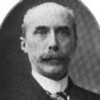William Douglas

William Douglas
Served as an associate justice of the U.S. Supreme Court from 1939 to 1975.
ProfessionSupreme Court Justice
Date of Birth16 October 1898
CityMaine, MN
William Douglas quotes about
ballots cast ignorance illiteracy illiterate masses obviously
Ignorance and illiteracy are obviously not synonymous; even illiterate masses can cast their ballots with intelligence, once they are informed.
beauty lost sat thoughts
I sat some minutes, lost in my thoughts of the beauty of the place.
beyond constitution critical places point reach silence
The critical point is that the Constitution places the right of silence beyond the reach of government.
cope either government imagination jeopardy leaders means moral opportunity people realize required revolution tools unable
If the government is in jeopardy, it is not because we are unable to cope with revolutionary situations. Jeopardy means that either the leaders or the people do not realize they have all the tools required to make the revolution come true. The tools and the opportunity exist. Only the moral imagination is missing.
destroy earth heavens help life problems promise solutions
We look to the heavens for help and uplift, but it is to the earth we are chained; it is from the earth that we must find our sustenance; it is on the earth that we must find solutions to the problems that promise to destroy all life here.
along certainly cheat decent explore foot friendly high horseback influence man mean men met mountains raised trails wholesome work
Mountains have a decent influence on men. I have never met along the trails of the high mountains a mean man who would cheat and steal. Certainly most men who are raised there or who work there are as wholesome as the mountains themselves. Those who explore them or foot or horseback usually are open, friendly men.
choice dissent human law laws police responsive society state suppressed vast
There are only two choices: A police state in which all dissent is suppressed or rigidly controlled; or a society where law is responsive to human needs. If society is to be responsive to human needs, a vast restructuring of our laws is essential.
alone beginning indeed justice
The right to be let alone is indeed the beginning of all freedom.
boards charge leave people planning wisdom
I've often thought that if our zoning boards could be put in charge of botanists, of zoologists and geologists, and people who know about the earth, we would have much more wisdom in such planning than we have when we leave it to the engineers.
above bonds country feels greatly longer nation reaches recent relaxed released relieved riot several speak though trip walks wonderful
After an American has been in a totalitarian country for several months, he is greatly relieved when he reaches home. He feels that bonds have been released and that he is free. He can speak above a whisper, and he walks relaxed and unguarded as though he were no longer being followed. After a recent trip I said to a neighbor, "It's wonderful to be back in a nation where even a riot may be tolerated.
censorship community excite expression freedom juries matter offensive provided punish relates standards tendency test turns worst
Any test that turns on what is offensive to the community's standards is too loose, too capricious, too destructive of freedom of expression to be squared with the First Amendment. Under that test, juries can censor, suppress, and punish what they don't like, provided the matter relates to "sexual impurity" or has a tendency "to excite lustful thoughts." This is community censorship in one of its worst forms.
east evil expression harmony unity wilderness
In the East the wilderness has no evil connotation; it is thought of as an expression of the unity and harmony of the universe.
brave honorable inferior less retreats ways
Honorable retreats are no ways inferior to brave charges, as having less fortune, more of discipline, and as much valor.
appointed base court opinions supreme
I can see you've done a lot of work, but you are off base here. If and when you get appointed to the Supreme Court you can write opinions as you choose.